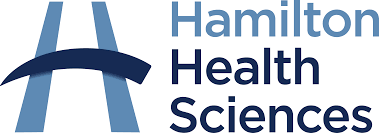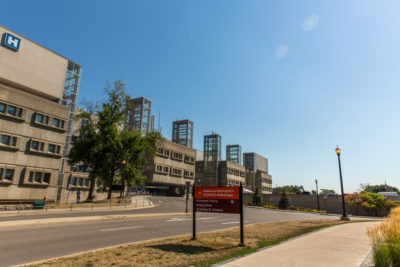Swallowing difficulty, or dysphagia, is a symptom of many different medical conditions Some examples may include neurological conditions, muscular disorders, physical blockages in the throat, surgery or radiation to the neck, dry mouth, and many illnesses.
Symptoms associated with dysphagia can include:
- Pain while swallowing
- Not being able to swallow
- Feeling as if food or pills get stuck in the throat or chest
- Coughing or gagging when swallowing
- Food coming back up
- Frequent heartburn
- Food or stomach acid backing up in the throat
- Weight loss
- Drooling
Feeling food, pills, or liquids stick in the chest or at the collar bone, regurgitation, and frequent heartburn are better assessed by Gastroenterology. Speech-Language Pathologists assess and treat oropharyngeal swallowing problems (i.e. problems that occur in the mouth and throat, specifically.)
Team Members
- Speech Language Pathologist (S-LP, or Speech Therapist): The S-LP is an accredited professional who has in-depth knowledge of the anatomy of the throat, and in the functional aspects of swallowing.
- Radiologist
- Business Clerks
- Communicative Disorders Assistant
Care We Provide
Adult patients are referred to the Outpatient Swallowing Clinic to undergo assessment of their swallowing for identification, management and treatment of dysphagia. You will meet with a Speech-Language Pathologist, who will discuss your swallowing concerns at length, review relevant medical history, and determine the need for further evaluation. The SLP will help to identify the cause of your swallowing problem and then provide strategies and recommendations to manage and treat it.
Some swallowing problems may require the expertise of other specialists including ENT, Gastroenterology, Respirology, etc. The SLP may recommended other referrals that your family doctor can make, as needed.
Treatment for swallowing problems may include swallowing exercises, changes to eating habits, or referral to other specialists for medications or medical procedures.
Please note – The outpatient swallow clinic is not for emergencies. If a blockage makes it hard to breathe, call for emergency help immediately. If you’re unable to swallow because you feel that food is stuck in your throat or chest, go to the nearest emergency department.
What to Expect
The initial assessment is a one-hour appointment. The Speech-Language pathologist will ask you for a description and history of your swallowing problem, evaluate the muscles of the mouth, observe you swallowing, and determine the need for further swallowing evaluations, which may be done in a separate appointment. Other tests used for assessment may include:
- Fiberoptic Endoscopic Evaluation of the Swallow (FEES) – a scope is passed through your nose to view the throat as you swallow different foods and drinks.
- Videofluoroscopic Swallow Study (VFSS) – a moving x-ray that shows how you swallow foods of different consistencies and barium in different liquid viscosities
How to Prepare
While you wait for your appointment, there are some things that you can do to improve comfort and safety with swallowing. First, make note of when the problem occurs. What caused it? Is it worse with liquids or solids, or both? Take note of any context or factors that could be contributing to the problem. This is called a mindful eating approach. Once you have identified a pattern to the problem, you can start to modify behaviours or foods to see if it helps. This is the first and an important step in learning to manage your swallowing problem, and will help with overall assessment and management of your swallowing problem.
What to Bring
- Ontario Health (OHIP) Card. If you do not have an OHIP card, please bring another form of government-issued photo ID, such as a driver’s license or passport.
- List of medications you are taking, including prescriptions, over-the-counter, vitamins or mineral supplements and herbal remedies.
- A trusted friend or family member who can help you, if needed.
- A List of doctors and hospitals you’ve seen in the past who may have information about your treatment
- A list of questions to help you remember everything you want to ask
- If there are particular foods that you have difficulty swallowing, please bring samples to allow assessment.
- When you arrive, please check-in at the reception desk. The Business Clerk will register you in the electronic system so that your team will know that you have arrived.
Referral Process
A doctor’s signed referral, FEES order form, and Diagnostic Imaging Requisition are mandatory (3 forms in total). Referrals may be made internally by HHS physicians or faxed directly to the clinic at 905-521-8552. The HIN# and clear demographic information is mandatory for all patients. Please use the Outpatient Swallow Clinic Referral Form.
External referrals are accepted only for patients who reside within the Hamilton Niagara Haldimand Brant Region. Please see the Resources section for more information. There are a number of other swallowing clinics in this LHIN and beyond that may have varying wait times. Please choose the clinic closest to home if possible.
This clinic is for adults only. Patients under 18 years old should be directed to the Pediatric Feeding and Swallowing Clinic. Call 905-521-2100, extension 75013 or visit the Pediatric Feeding and Swallowing Clinic web page.
Priority Referrals – referrals are reviewed on an individual case basis. The current wait for services is approximately 6-8 months. Every effort is made to see more urgent cases as quickly as possible, but a wait of 1-2 months should be expected.

